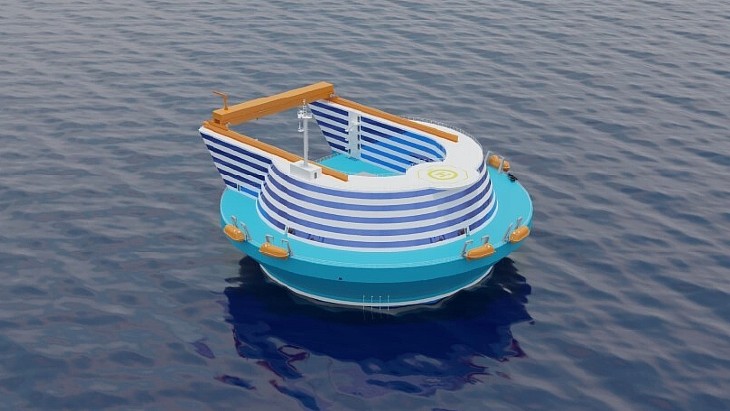Japanese firms invest in maritime nuclear developer Core Power
More than a dozen Japanese companies have invested a combined total of about USD80 million in the UK-based Core Power, which is helping develop a floating molten salt reactor (MSR) nuclear power plant and other maritime applications, according to Nikkei Asia.

(Image: Core Power)
The companies include Onomichi Dockyard and Imabari Shipyard, according to Nikkei. Its report, which has been highlighted on Core Power's website, says the Japanese companies "have subscribed to a third-party allocation of new shares by Core Power - the British company raised about USD100 million and is now majority-owned by Japanese companies".
A multinational team including Core Power, Southern Company, TerraPower and Orano USA are part of the Molten Chloride Reactor Experiment which aims to see the "world's first fast-spectrum salt reactor achieve criticality", to be built at Idaho National Laboratory, backed by US Department of Energy (DOE) funding. Last year Core Power, MIT Energy Initiative and Idaho National Laboratory were granted research funding by the US DOE's Nuclear Energy University Program, a three-year study into the development of offshore floating nuclear power generation in the USA.
Core Power has stressed the safety benefits of molten salt reactors noting that the fuel and the coolant are mixed in a fuel-salt which is liquid at high temperatures and "using a liquid fuel where the fuel and coolant are the same, has immense implications on the safety of the reactor system, as a loss of coolant accident is impossible. An MSR cannot melt-down, because the fuel is already liquid and since the fuel is locked into the coolant, toxic radioisotopes which are formed in the fission process cannot escape into the environment in the event of an accident". As Core Power Chairman and CEO Mikal Bøe put it in a World Nuclear News interview in 2021: "A ship may be lost at sea and may sink to 8000 metres on the ocean floor, but even then, it would not pollute the environment" with the MSR fuel "cooling until it's a solid rock and that solid rock should be entombed inside the reactor vessel".
Floating nuclear power plants are seen as having future growth potential because they provide flexible location options, being placed at sea from where they can provide electricity or hydrogen or water desalination for onshore use and Core Power says its aim is also to produce "a competitive true-zero emission power system for the future of maritime by 2030".
Researched and written by World Nuclear News
- China Institute of Atomic Energy
- Nuclear Power Institute of China
- Southwestern Institute of Physics
- China Nuclear Power Operation Technology Corporation, Ltd.
- China Nuclear Power Engineering Co., Ltd.
- China Institute for Radiation Protection
- Beijing Research Institute of Uranium Geology (BRIUG)
- China Institute of Nuclear Industry Strategy (CINIS)
- China Nuclear Mining Science and Technology Corporation


